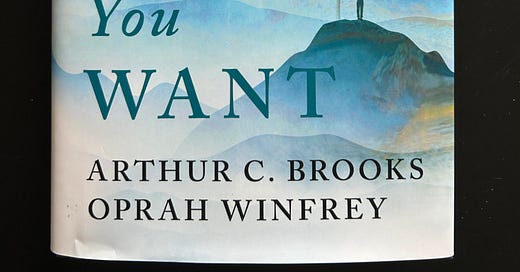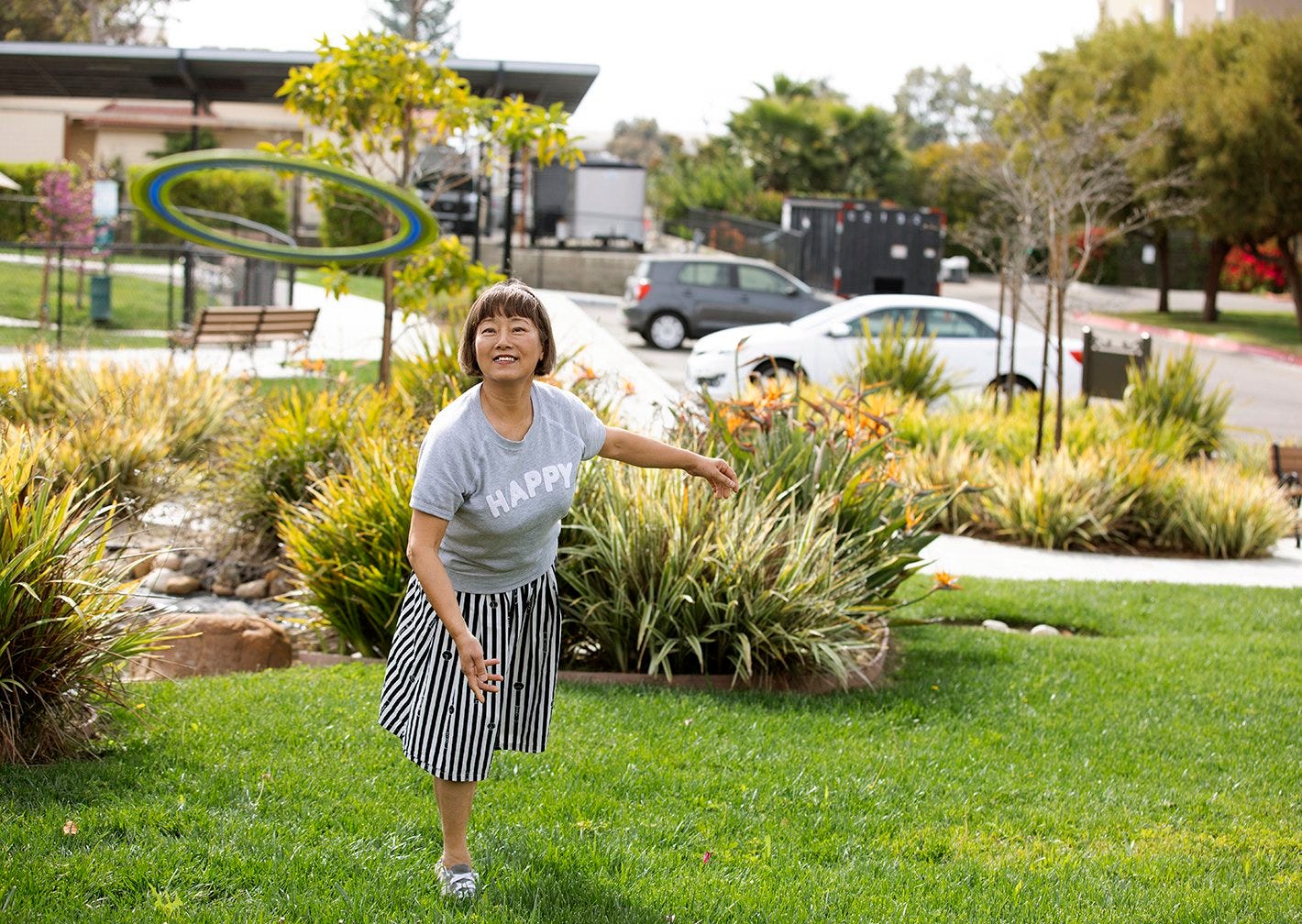Science-Backed Tools for Happiness
Featuring new book, Build the Life You Want, by Oprah and Arthur C. Brooks
Age and Prosper is a reader supported publication created for anyone looking for healthy longevity. If you enjoy it, please consider supporting it financially for $5 a month or more (and/or sharing it). Becoming a paying subscriber supports us in producing this newsletter and bringing you up-to-date information to help you live a longer and healthier life.
You can expense this newsletter as an educational resource on your taxes if you pay for a subscription. You can also sign up company employees for health perks with a group subscription. The information provided on Age and Prosper is intended to be educational; it should not be used as a substitute for professional medical advice.
Tom is very excited right now because he has recently added a new book to his arsenal of self-help and Eastern religious studies tomes, and he’s very into it. The book is called Build the Life You Want, by Oprah and Arthur C. Brooks. Brooks’s bio: “Arthur Brooks is a Harvard professor (of happiness!), PhD social scientist, #1 bestselling author, and columnist at The Atlantic who specializes in using the highest levels of science and philosophy to provide people with actionable strategies to live their best lives. Arthur provides happiness training and professional development to businesses, academia, government, and faith communities based on cutting-edge research in social science and neuroscience, as well as philosophy and wisdom traditions.”
Dream job, am I right?
Now, before you do exactly what I did and groan about yet another self-help book that you’ll probably end up using as a coaster for the next six months while you read WWII-era historical nonfiction and PG-rated Louise Penny murder mysteries (just me?), consider that Oprah and Brooks have anticipated this response. To which they say: “This is not another book with unrealistic promises of perfect bliss. It is a research-based work plan that meets you wherever you are and shows you how to make greater happiness a choice.”
Make happiness a choice. That’s the ticket, isn’t it.
But, if you don’t want to read the book (don’t feel badly, I probably won’t), here is a cheat sheet.
Here are the happiness principles to from Brooks and Oprah:
1. Earn Success: Earning success is crucial for genuine happiness. When individuals work hard and achieve their goals through effort and perseverance, it brings a sense of fulfillment and satisfaction.
2. Find Meaning in Life: The importance of finding purpose and meaning in life. Engaging in activities that align with our values and contribute to the greater good can bring a deep sense of fulfillment and happiness.
3. Cultivate Gratitude: Practicing gratitude is a key aspect of happiness. Being mindful of and appreciative for the positive aspects of our lives can increase happiness and overall well-being.
Above, a portrait Tom took of a happy “San Diegan” for a client.
4. Foster Relationships: Brooks highlights the significance of strong social connections and relationships in achieving happiness. Building and nurturing relationships with family, friends, and community can lead to greater happiness and life satisfaction.
5. Practice Generosity: Giving to others and engaging in acts of generosity can have a profound impact on happiness. Brooks suggests that being generous not only benefits others but also enhances our own well-being.
6. Embrace Faith and Religion: For individuals who are religious, embracing faith and participating in religious activities can be a source of happiness and personal fulfillment or having a strong life philosophy. Brooks argues that religious faith provides a framework for finding meaning and purpose in life.
Until next week, Age, Prosper, and find more happiness!





